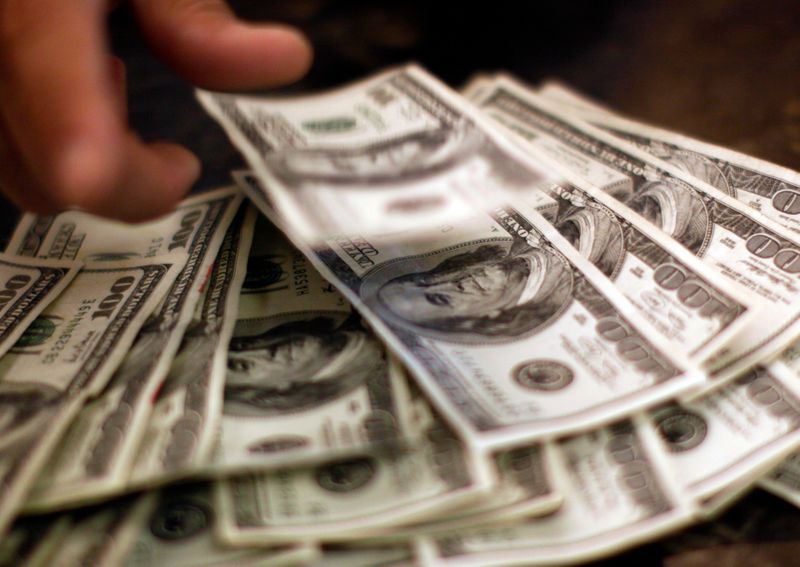 © Reuters
© Reuters
By Scott Kanowsky
Investing.com -- The U.S. dollar was broadly unchanged in limited European trading on Friday, as it stayed on track for its biggest increase in seven years.
As of 04:14 ET (09:14 GMT), the U.S. Dollar Index - a measure of the greenback against a basket of key currency peers - had moved down marginally by 0.03% to 103.81.
Throughout the year, the dollar has been supported by aggressive Federal Reserve interest rate hikes, which the central bank rolled out in a bid to cool red-hot inflation. The Fed has raised borrowing costs by an unprecedented 425 basis points since March, with rates now standing at their highest level in 15 years.
The euro edged up by 0.07% to $1.0667, placing it on pace for a more than 6% annual decline. The single currency is now exchanging hands above $1, recovering from a sharp dip earlier this year that left it below parity against the dollar for the first time in nearly two decades.
Along with the surge in dollar strength caused by the Fed's policy actions, the euro has been hit by lingering concerns over the war in Ukraine and the impact of a potential energy crisis.
The British pound weakened slightly by 0.06% to $1.2045. Sterling remained on course for an over 10% slide in 2022, ending a year marked by political upheaval and market volatility.
Both currencies have been given some support by a string of rate rises by the European Central Bank and the Bank of England, which are also trying to bring down soaring prices.
Elsewhere, the Bank of Japan unveiled a third day of unscheduled bond buying, as it looks to push back against bets that it will begin edging away from its recent ultra-accommodative monetary policy. But, even still, investor sentiment that it will start to tighten policy persisted, which in turn gave support to the Japanese yen against all of its Group-of-10 peers.
The aussie held on to gains of 0.21% to $0.6793, but it is still facing a more than 6% yearly slip against the dollar. The kiwi fell by 0.15% to $0.6337, putting its one-year change on course for an over 7% decrease.
Chinese offshore yuan, meanwhile, moved down to 6.9623 per dollar. It is heading for its worst yearly performance since data first became available in 2011, reflecting China's strict approach to corralling coronavirus infections.
Beijing has shown signs that it is beginning to ease its so-called zero-COVID policy, although the relaxation in rules has been cited as a possible reason for a recent spike in cases around the country. Italy, the U.S., and India are among a number of nations that are now requiring people traveling from China to provide negative COVID tests.
Meanwhile, the Russian ruble strengthened by 1.49% against the dollar to 71.0906, recovering from an eight-month low touched during the prior session.

